Transforming Lives
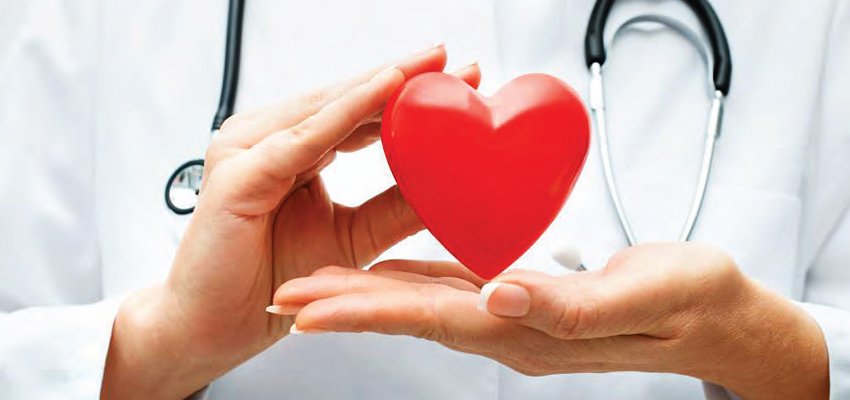
Dr Sanjay Cherian has scripted a path to success on his calibre and swears by the saying ‘never say no to a new learning opportunity’. It has motivated him to develop a new 3D-printed heart valve that is speculated to be the future of cardiac surgery. From dreaming of becoming a pilot as a child to currently serving the Frontier Lifeline Hospital, Chennai, as their Vice President and COO, Sanjay has come a long way. In conversation with Corporate Citizen, Sanjay opens up about his journey so far, talks about why corporates are more prone to heart diseases, how to reduce stress, latest technologies in healthcare, and a lot more.
"My path was long and tough, nevertheless, it has been very rewarding and satisfying to see that I have been able to touch the hearts of the patients (both literally and emotionally) and change their lives for the better"
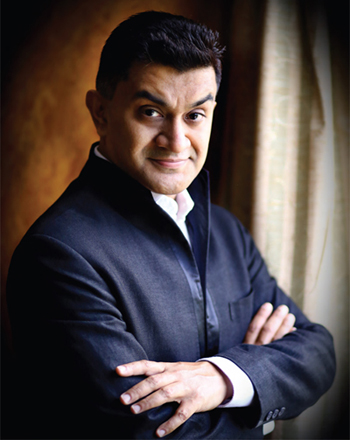
Corporate Citizen: Tell us about your initial days.
Dr Sanjay Cherian: I was born in Sydney, Australia, after which, my family moved to New Zealand. Soon after that, we moved back to India where I completed my schooling at Don Bosco, Egmore, Chennai, and later moved to Portland, USA. I did travel a lot for my education and I feel it has added a lot of value to my professional journey. I earned my MBBS degree from Manipal University for my internship with Kilpauk Medical College, Chennai. Following that, I went to Australia to pursue my Masters in Surgery. Subsequently, I went to the UK (Royal College of Surgeons) and did my MBA (Oxford Business School) there. My thirst for knowledge and passion for continuous learning has brought me this far. And to carry on that legacy, I did my PhD from MGR Medical University and also went to Switzerland for a Fellowship in Cardiac Surgery at the University of Geneva and completed my Doctorate of Medicine.
Finally, in 2011, I returned to India and since then I am serving the Frontier Lifeline Hospital, Chennai, as their Vice President and COO. I am trying to strike a balance between my surgical career, administrative responsibilities, academic and research interests, and my family life. To be honest, my education journey has played a vital role in shaping me as an individual. It is not just about getting a degree or a certificate to hang on the wall. There is a lot more to learn other than from textbooks. I feel that my growth and development came from observing my teachers during my undergraduate and postgraduate years. For me, they were my role models not just from a surgical point of view, but also the way they conducted themselves. The way they treated their patients and with courtesy and kindness, will always stays in my heart.
CC: Growing up you wanted to pursue your dream of becoming a pilot.
Yes, that’s right! Growing up as a child, we had lots of pilots as family friends, who I always looked up to. That pushed my intention of becoming a pilot. I also thought they were very lucky to travel all over the world and as a person, I also love to travel, see new places, experience different cultures, meet new people, and taste various kinds of cuisines from all over the world. Even today, I have a lot of friends who are pilots and have travelled with them in the cockpit. Although it was interesting to see the aeronautical instrumentation cluster all around them and to watch them manoeuvre the aircraft, I realised that I felt a little claustrophobic after a while - being locked up in a closed environment for long hours, and with the sunlight glaring into my eyes from three different directions, was daunting.
My mother was the one who discouraged me from becoming a pilot. She was worried about my safety-a plane crash that occurred when I was in the finishing years of my school didn’t help my cause. Thinking back, I feel I made the right decision to become a doctor. It feels good that I can carry on the legacy which was started by my parents-I have been able to help and transform the lives of several heart patients and to receive their blessings and prayers. I think one of the highlights was that one of my patients named his son Sanjay. After a successful operation, the parents thought it was only fitting to name their son after me. I was moved by that gesture.
CC: Despite being born to parents who are well-established doctors, you have carved your path towards success on your will. How easy or hard was it to make your mark?
Most children of doctors opt not to be a doctor themselves because they have seen the difficult life and the sacrifices their parents have made especially in terms of family time. Furthermore, even if doctors’ children do choose to become doctors, they usually don’t choose the same speciality as their parents. As a student, I liked Science, especially Biology-I guess it was a natural choice to choose Medicine as a career option. Initially, I was interested in plastic surgery, as I liked the fine and intricate work involved in it. However, I was exposed to cardiac surgery during my early medical years, especially during my internship. I had seen my father and his team operating on hearts and I found it interesting. I realised the fact that these surgeries were life-saving. I took a conscious decision to pursue cardiac surgery as a career, despite knowing that I would be compared to him, but I took it on as a challenge. The path was long and tough, nevertheless, it has been very rewarding and satisfying to see that I have been able to touch the hearts of the patients (both literally and emotionally) and change their lives for the better.
"To be successful in life, you need to strive hard, communicate effectively, work as a team, strike a good balance between your work, your personal life, and your health. We should identify our talent, nurture it, use it to the best of our ability, and help others around us"
CC: Can you walk through your role and responsibility as the Vice President and COO at Frontier Lifeline Hospital?
As a Vice President and Consultant Cardiac Surgeon, I try to wear two hats at the same time. Most of my time goes into clinical work (active surgical practice), followed by patient consultations and reviews. I also handle the administrative responsibilities, coordinate with other departments ensuring quality, control, purchase, human resource management, marketing, finance, etc. I also spend my time with journal publications and research activities, with a special interest in 3D printing of heart valves, etc.
CC: An advice that changed your life?
One piece of professional advice which I will always remember was by Professor Rowan Nicks, a retired professor of cardiac surgery in Australia. His advice, "never say no to a new learning opportunity" transformed my life. This advice was followed by a very touching story. He spoke about the time when he was a part of the Medical Corp during World War II. He had to perform several surgeries for the first time without much guidance from his seniors. Such situations groom you for the better. This story and the lesson learnt is quite close to my heart.
As a fresher, I had to perform small surgeries for the first time. With only theoretical knowledge and diagrams from textbooks to guide me, I was able to do it successfully, courtesy of Professor Nicks and his words of wisdom. It motivated me not to shy away from these learning opportunities. That piece of advice gave me the courage and helped me a lot especially during my early years of surgical training.
CC: Studies suggest that most corporates are prone to heart diseases.
There are multiple risk factors responsible for heart diseases in young Indians today. First and foremost, the poor dietary habits, because of their busy lifestyle. With that their work schedules with meetings, travel, targets or deadlines, etc, put their health at risk. Owing to this sedentary and hectic lifestyle, they are unable to eat their food on time, let alone eating healthy or home-cooked food. They tend to eat at cafeterias while travelling and snacking during meetings etc, is harmful in the long run. During all this, they end up eating junk food, that is high in oil, salt, and sugar.
Another factor that adds to the problem is the stress of work and personal life. Constantly worrying about deadlines, goals, performance appraisals, and other things puts pressure on the heart. This further increases their blood pressure, leading to hypertension. Yet another important factor is the lack of time to exercise. Most corporates have client meetings, new business proposals, international, conference calls, etc – as a result of which, they work long hours, and have less sleep or are prone to disturbed sleep. Many of the corporates tend to smoke and consume alcohol as a means of relaxing and letting out their steam, which again is not good for the heart. Hence, this combination of untimely meals, unhealthy diet, stress, lack of physical exercise – all put together, make corporates prone to heart disease.
CC: How can corporates, or rather everyone, overcome this menace of heart diseases?
My word of advice to all is to avoid junk food, caffeinated beverages, carbonated soft drinks, etc. Replace them with healthy snacks such as sprouts, fresh salads, and fruits. Make time for exercise, preferably in the morning, and do not put off exercises to the later part of the day. Try to climb the stairs, avoid using elevators. Yoga and deep breathing exercises can help you stay calm and relaxed.
CC: Has the medical vertical been at the forefront when it comes to incorporating technology in its process?
In the past two decades the healthcare segment has evolved exponentially, especially with regards to data storage, analysis, and retrieval. The boom of Artificial Intelligence is surreal. This has resulted in newer applications to develop innovative diagnostic algorithms and formulate new treatment protocols, etc. Advancements in robotic engineering have led to the development of robotic surgery. The primary advantage of the robotic arm is that it is very thin and rotates freely over 360 degrees, hence surgeries can be performed through small incisions (minimal invasive techniques), rather than through the traditional long incisions. With better collaboration between engineers and doctors, newer innovations and instruments are being developed-3D and 4D imaging are possible now, resulting in higher clarity and better diagnosis, aiding in better surgical planning, hence, better patient outcomes.
"One piece of professional advice which I will always remember was by Professor Rowan Nicks, a retired professor of cardiac surgery in Australia. His advice, "never say no to a new learning opportunity" transformed my life"
CC: The new 3D-printed heart valve that you developed in collaboration with VIT, Chennai, is speculated to be the future of cardiac surgery. What motivated you to come up with this concept?
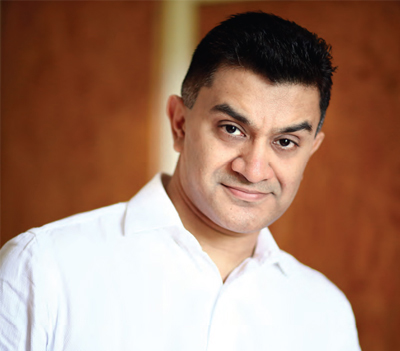
Currently, there are only two types of commercially available heart valves for patients who need a heart valve replacement. However, both mechanical valves (made of metal) and tissue valves (made from animals) have their limitations. With the mechanical valves, the patient needs lifelong anticoagulation (blood thinners) and constant monitoring of the thickness of their blood. In the case of tissue valves, especially with the current pandemic situation, the risk of transmission of viruses from animals to humans is a constant worry. Furthermore, the tissue valves can get infected or can degenerate in the long run. With all this, I asked myself, ‘How can we do better?’
I wanted to come up with a technique that was better than the available ones. This led to a tonne of research. I explored the 3D printing arena and different kinds of materials that have been employed so far. Biopolymers were noted to be bio-compatible with blood and human tissues. It is soft yet strong, pliable and heat resistant. I decided to try and use different types of biopolymers to develop a new heart valve. I worked in collaboration with engineers from VIT, Chennai, and we came up with different compositions and multiple designs. By trial and error, we finally came up with an ideal biopolymer that works and overcomes the disadvantages of the existing valves.
CC: The whole COVID situation was tough on all. How did you manage this professionally and personally?
True, the pandemic times were difficult. Irrespective of our financial or geographical background, everyone was affected. From a work point of view, as medical doctors we had to take lots of precautions – wearing double masks, face shields, hazmat suits, double gloves, shoe covers, etc. It was very difficult to perform surgeries wearing all these. We felt hot and sweaty inside, because of which, we felt thirsty at the end of our 3-4 hour operations. We were physically and mentally exhausted because of all the carbon dioxide that we were rebreathing into our bodies. With time, we somehow got used to it. All patients and staff were screened, even for the slightest of a cough, cold or fever, to the extent that some of us were getting paranoid about our risk of exposure and we needed to check ourselves to reassure ourselves that we were covid negative.
Personally, the pandemic was an emotional disaster for me. Unfortunately, I lost my mom to Covid-related complications; despite our best efforts, we could not save her. Soon after my mom’s demise, I also tested positive for Covid. I was broken, both mentally and physically. It made me realise that life is indeed very fragile. Just like trying to hold on to sand; the tighter we try to grip, the more sand that slips in between our fingers. I was worried that I should not transmit the infection to my family, friends, and colleagues. Hence, I quarantined myself for over two weeks and double-checked that I was negative before I returned to my routine.
CC: Do you follow any specific rituals before starting a surgery?
I am not superstitious, but I do make it a point to start every surgery with a small prayer. During the initial stages of my career, I was probably a little nervous and cautious, to ensure that I do my best every time for every patient. However, as the years go by, I guess it is very similar to driving a car; it becomes a routine. Cardiac surgery has become a part of my daily routine. Even during emergencies, I try to stay calm and collected. Of course, there are rare occasions when I have lost my cool. I have come across surgeons who become extremely angry, throw instruments, and scream at their assistants. This, I felt only makes the entire environment tenser, and less productive. I strive to stay relaxed, and we usually talk about sports, movie reviews, crack simple jokes to lighten up the mood, and also listen to soft music during surgery. I do not believe in any routine, other than reviewing all the patient’s reports just before performing the surgery, to help refresh my mind about the surgical plan.
"It is very wrong to equate any human to God. It is a privilege that God has given us (doctors) an opportunity to literally touch someone’s heart. As a doctor, we all do our best to treat every patient and ensure that they fully recover"
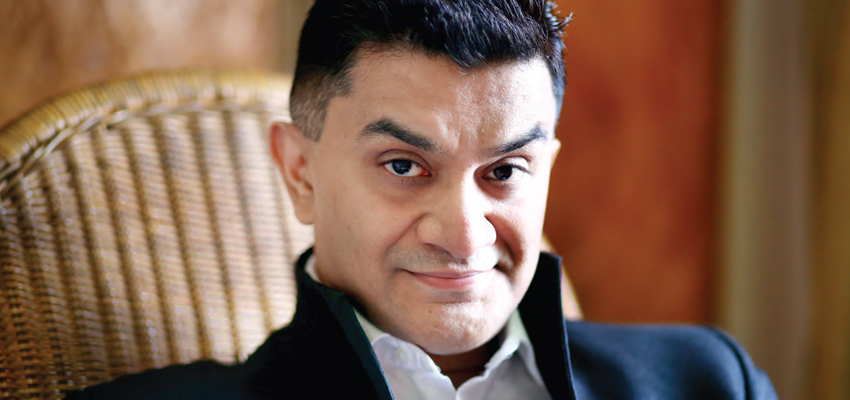
CC: Can you tell our readers about one surgery that left a mark on your heart?
A 50-year-old lady, who was extremely thin (she weighed only 35kgs), had a bad heart valve disease that needed valve replacement surgery. She was advised of this surgery seven years ago, but due to certain financial and family constraints, she had postponed the surgery. There came a point when her symptoms worsened, and she was unable to perform her everyday activities. That’s when she came to me for valve replacement surgery. Surgery was a success, and she was shifted to the ICU with her new valve in place. She was fully awake, well-oriented and stable. I saw her just before I left the hospital. While driving back home, I got a call on my mobile phone, informing me that she suddenly crashed. We immediately shifted her to the operation theatre, and we discovered that she had a sudden bleeding because of her weak tissues.
The bleeding was stopped with sutures, and she recovered well after her emergency surgery. However, she required several units of blood transfusion and was on ventilator support for many days. She slowly regained her consciousness. Since her blood group was not available, I donated my blood, and I was just praying and hoping for her speedy recovery. She had several life-threatening complications, including renal failure, that required dialysis. To add to that, as she was very weak, she was unable to eat for which, we started her feeds through a nose tube. She was completely bed ridden, following which she developed bed sores. Her family had given up all hope and requested me to let her die in peace. I prayed that if she goes back home without any complications, I will give an offering to God. Slowly, but steadily, she recovered. Soon she was discharged from the hospital in a stable condition, by God’s grace. She is perfectly back to normal now, and she has resumed her full-time government job. She visits me regularly for her annual check-up. I believe her recovery was a miracle of God. As promised, I went to Vellankanni and tonsured my head and gave it as my offering to God. I will always remember this patient.
CC: How do you handle the pressure when people give doctors the tag of God?
It is very wrong to equate any human to God. It is a privilege that God has given us (doctors) an opportunity to literally touch someone’s heart. As a doctor, we all do our best to treat every patient and ensure that they fully recover. In most cases they do. However, there are rare occasions when they may not, mainly because the patient comes to us at a late stage of their disease. Despite our best efforts to prevent it from happening, there are times when even elderly patients who are in their 70s and 80s fall at your feet and call us ‘Gods’ as a mark of gratitude for our work. This makes us feel humble and very embarrassed. At the other end of the spectrum, there are times, when things go wrong, we are at the receiving end of their anger and frustration. My only request to patients and their family is to remember that all doctors are human, not Gods. Please do not worship doctors as Gods when the patient does well, and at the same time, do not look at doctors as villains when something goes wrong.
"With better collaboration between engineers and doctors, newer innovations and instruments are being developed-3D and 4D imaging are possible now, resulting in higher clarity and better diagnosis, aiding in better surgical planning, hence, better patient outcomes"
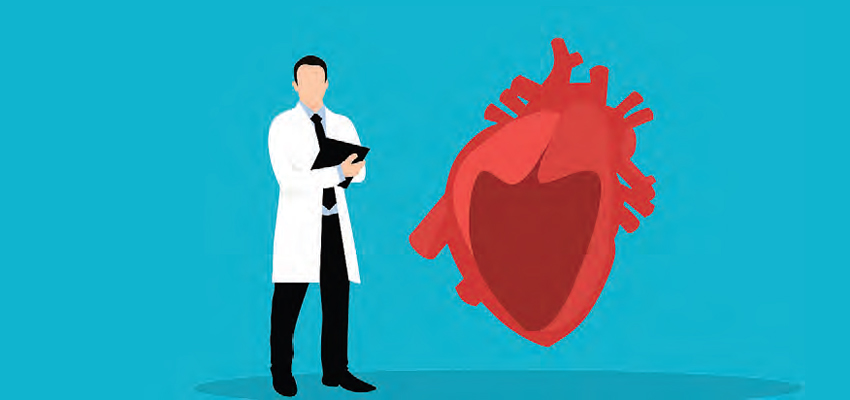
CC: How do you attain work-life balance?
The life of most doctors, especially that of a heart surgeon, is quite hectic. There are times when I have cancelled a family dinner or outing or movie at the last minute. It is very difficult for friends and family to understand and accept this sudden change of plans. Hence, it is very important to communicate to them very clearly that although you would like to spend quality time with them but in emergency situations, the life of a patient always comes first. I am blessed and lucky to have family and friends who are very understanding and supportive. I am busy with work from Monday to Saturday, but my Saturday evenings and Sundays are completely reserved for my family, friends and myself. I keep my weekends free from work, which gives me adequate time to unwind, relax, and spend quality time with my family and friends.
CC: How do you keep yourself fit?
I am not a health freak, but I try to have a disciplined lifestyle. I usually wake up early, which I learnt from my mom, who used to wake up by 5 am. The moment I get up, I make a quick call to the ICU to get an update about the patients. After that, I usually go for a walk or jog for 30-45mins, do some stretching exercises, and do lightweight training. At work, I always use the stairs, and I seldom use the elevator. In terms of my diet, I prefer eating a homemade healthy breakfast, usually with lots of nuts and fruits. My lunch is usually at work and consists of a clear soup, salads, juices, and fruits. During the day, I avoid snacks and I limit myself to 1-2 cups of green tea with lime. I prefer going back home to an early dinner, followed by a small walk, before I go to bed. I believe that walking and simple exercises for approximately 30 mins per day is good enough.
CC: When not working how do you spend your time?
As I had mentioned earlier, I love music. And to take this passion further, I even learnt western classical music from the Trinity College of Music. With that, I play the piano, which helps me to relax and unwind. I used to read novels, but, lately, I don’t find time for it. I love to travel and go for small drives along the coast to Pondicherry. I love to cook small meals; although I am no Master Chef, I can cook to survive. I love watching movies, but since I don’t have too much time at my disposal, I am very choosy, and only watch those with good reviews.
CC: What is your philosophy in life?
We do not decide when we will begin our life on this planet, similarly, we do not know when our end will be. Although we may think that we know what to do with our lives and how our lives will pan out to be, the truth is that nothing is really in our hands. Each of us is unique in our way. Don’t try to compare yourself with others. Wait for your turn. Your time will come too. I believe that God has given some form of talent to each one of us. We should identify it, nurture it, use it to the best of our ability, and help others around us. We should not be just good in our professional lives; it is more important to be a good human being. I believe that there is more to life than just work. To be successful in life, you need to strive hard, communicate effectively, work as a team, strike a good balance between your work, your personal life, and your health. I thank my mom for teaching me to be kind and helpful while expecting nothing in return.